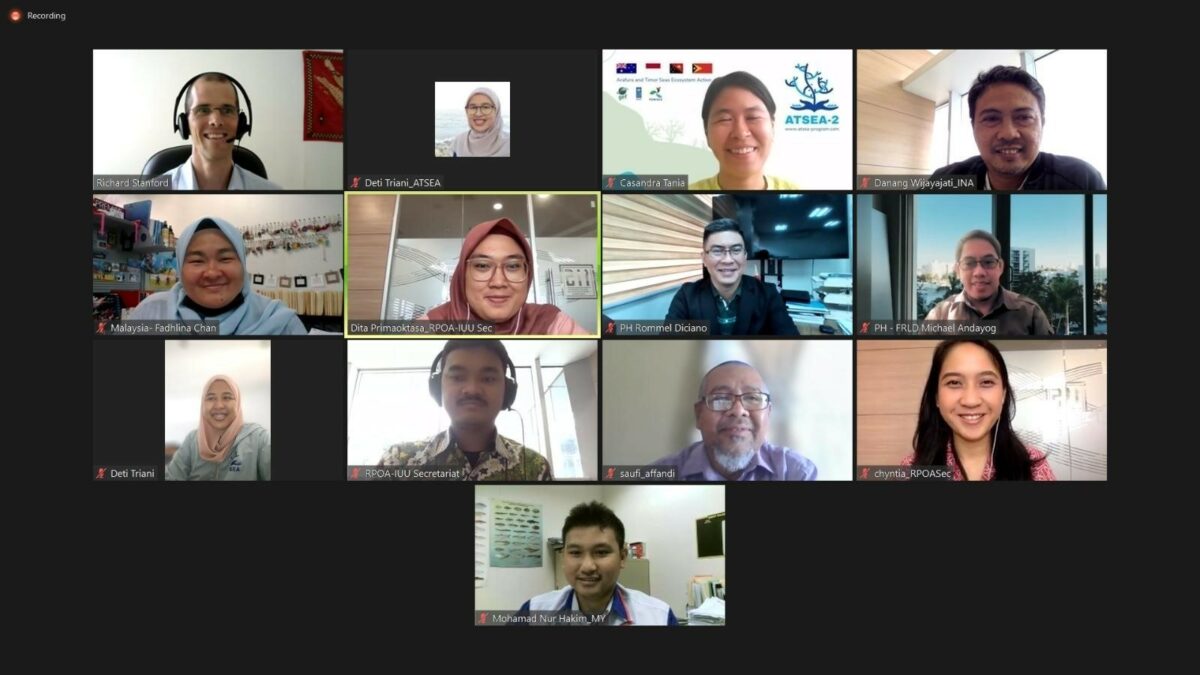Regional problems require regional solutions. This is why collaboration is so crucial to the work being done by the ATSEA-2 Project. Our approach is embodied in the Regional Plan of Action to combat IUU fishing (RPOA-IUU).
IUU fishing continues to pose a major threat to the Arafura and Timor Seas (ATS) region. Ever since its inception, the ATSEA program has sought to align its activities with the RPOA-IUU and support its implementation wherever possible. Between 2020 and 2021, the ATSEA-2 Project completed four studies on IUU fishing, then co-organised fisheries intelligence training and an international workshop on ‘Advancing regional standards for responsible fisheries’, in April and June 2022, respectively.
Since November 2022, RPOA-IUU implementation support on the part of the ATSEA-2 Project has been supported by Dr Richard Stanford. Specifically, this has involved the development of an information sharing mechanism, along with Monitoring, Control and Surveillance (MCS) training needs assessment for the 11 RPOA-IUU participating countries (Australia, Brunei Darussalam, Cambodia, Indonesia, Malaysia, Papua New Guinea, The Philippines, Singapore, Thailand, Timor-Leste and Vietnam). The 11 countries are divided into three sub-regional groups: (1) Gulf of Thailand (GoT), (2) Southern and Eastern South China Sea (SESCS) and the Sulu-Sulawesi Seas (SSS) and (3) ATS.
A round of interviews was conducted with representatives of each country to better understand their perspectives and gather inputs that can inform the development process. Several key questions related to the types of data collected by each country, their willingness or objection to sharing those data and considerations behind their reasons. Regarding MCS training, questions dealt with country needs and pre-existing assessments on capacity, conducted internally or externally.

In addition to the key respondent interviews, the ATSEA-2 Project (again, represented by Dr Stanford), attended the 15th Coordination Committee Meeting (CCM) in Fremantle from 22-24 November 2022. After several years of virtual meetings, the CCM provided a long-awaited opportunity for many of the participants to meet face-to-face again. Each country was able to present a report on its progress towards responsible fisheries management and how they are combatting IUU fishing.
During that meeting, the ATSEA-2 Project presented some preliminary findings from its work related to data sharing and MCS capacity in support of the RPOA-IUU Secretariat. RPOA-IUU participating countries expressed their appreciation for the additional capacity building ATSEA was able to facilitate in this area. Dr Stanford also took the opportunity to engage with country representatives and gather more information on the regional MCS Training Curriculum, which is currently under development.
In the first quarter of 2023, the ATSEA-2 Project has continued to support the RPOA-IUU Secretariat by facilitating consultations on information sharing and MCS training needs alongside other activities. Two Focus Group Discussions (FGDs) for GoT and SESCS and SSS were conducted to present key findings of the preliminary survey, to receive inputs from RPOA-IUU participating countries on these key findings and make recommendations for how they can collaborate towards information-sharing and enhance regional MCS capacity to combat IUU fishing.
Based on those activities, a roadmap for developing an information sharing mechanism has been developed, while training needs for MCS have also been identified. These have been submitted to the RPOA-IUU Secretariat for their consideration. In tandem with the work of the RPOA-IUU Secretariat, each of these initiatives will help to strengthen capacity and ‘close the net’ on IUU fishing in the region.
By Dr Richard Stanford and Casandra Tania


